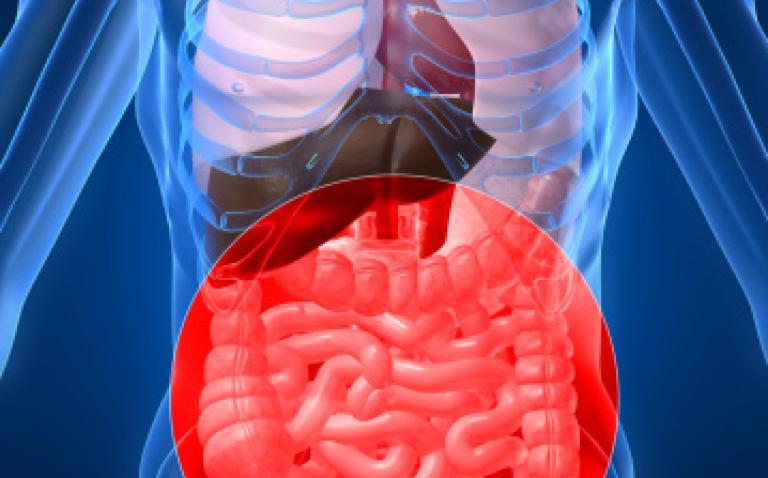AbbVie has announced the first long-term, patient-reported health outcomes data from analyses of the Phase III IMAgINE-1 trial.
The analyses assessed improvements in health-related quality of life (HRQOL) measures for paediatric patients aged six to 17 years with severe active Crohn’s disease, taking HUMIRA, who had an inadequate response, were intolerant or had contraindications to conventional therapy, as well as the work productivity of their caregivers throughout the 52-week study.
The results of these analyses are being presented this week at the European Crohn’s and Colitis Organisation (ECCO) 8th Annual Congress.
“It is important to assess both clinical and health-related measures in the management of paediatric Crohn’s disease to ensure better overall patient outcomes,” said Johanna C. Escher, MD PhD, associate professor, Paediatric Gastroenterology, Erasmus MC-Sophia Children’s Hospital, Rotterdam, The Netherlands. “Quality of life analyses from studies like the IMAgINE trial can be of value to the medical community and ultimately patients as they both manage this long-term and difficult-to-treat condition.”
The effect of HUMIRA on HRQOL associated with paediatric Crohn’s disease was assessed in the IMAgINE-1 trial using the IMPACT III questionnaire. IMPACT III evaluated six HRQOL domains—bowel symptoms, body image, functional/social impairment, emotional impairment, tests/treatments and systemic impairment. The questionnaire was completed by 176 patients ten years or older at baseline and at weeks 12, 26 and 52. At baseline, the mean total IMPACT III score indicated substantial HRQOL impairment.
The results of the analysis found both the standard and low doses of HUMIRA treatment investigated in this study were associated with significantly improved HRQOL compared to baseline (P<0.001) at weeks 12, 26 and 52. For all evaluations, the increase in total IMPACT III scores exceeded 10.8, which has been reported to be indicative of clinically meaningful improvement.
“Paediatric Crohn’s disease can affect many aspects of patients’ lives—body image, functional/social skills and activities along with emotional health—during a key period of physical and social development,” said Jeffrey S. Hyams, MD, head, Division of Digestive Diseases, Hepatology and Nutrition, Connecticut Children’s Medical Center. “This study evaluated adalimumab treatment in paediatric patients and in addition to the primary efficacy parameters, the results showed improvement in important patient-reported outcomes—indicating patients could quickly see progress in matters that are important to their overall well-being.”
Paediatric CD is a chronic, debilitating condition of the gastrointestinal (GI) tract that affects up to 200,000 children worldwide. CD, which is a type of inflammatory bowel disease (IBD), most commonly involves the end of the small intestine and the beginning of the large intestine. The disease can pose a substantial psycho-social burden to younger patients and is associated with reduced quality of life for both patients and their caregivers.
“Patient-reported outcomes data specifically focused on health-related outcomes can help measure the impact treatment has on the patient’s everyday life,” said John Medich, PhD, divisional vice president, Immunology Clinical Development, Global Pharmaceutical Research and Development, AbbVie. “AbbVie is pleased with these results and will continue to explore ways HUMIRA can help improve the quality of life for these young patients and others affected by this chronic and debilitating inflammatory bowel disease.”
Study results
The first analysis assessed the effect of treatment with HUMIRA on HRQOL in paediatric patients with active, moderate to severe CD using the IMPACT III questionnaire, a 35-item questionnaire developed to assess HRQOL in patients with paediatric IBD where scores range from 35 to 175 with higher scores indicating higher HRQOL. The analysis found both doses of HUMIRA treatment were associated with significantly improved HRQOL compared to baseline (P<0.001) at week 12 (low dose: mean change in IMPACT score=16; standard dose: mean change in IMPACT score=18), week 26 (low dose: mean change in IMPACT score=17; standard dose: mean change in IMPACT score=18) and week 52 (low dose: mean change in IMPACT score=17; standard dose: mean change in IMPACT score=19). While all subgroups of patients saw improvements, patients who had a clinical response to HUMIRA at 4 weeks or were anti-TNF naive appeared to have the greatest improvements.
A second analysis evaluated the work productivity of caregivers of paediatric patients with CD treated with HUMIRA. Caregivers of patients in the IMAgINE-1 trial completed the four-domain Work Productivity and Activity Impairment Questionnaire (WPAI-CD) at each visit (baseline and weeks 4, 12, 26 and 52). The results of this analysis will also be presented at ECCO.
In November 2012, the European Commission approved HUMIRA for the treatment of paediatric patients aged six to 17 years with severe active CD who have an inadequate response, are intolerant or have contraindications to conventional therapy.










